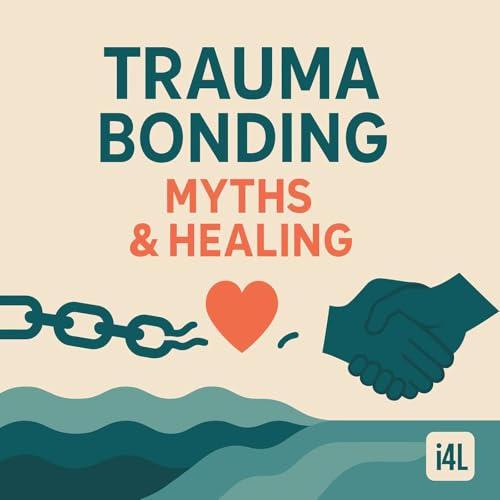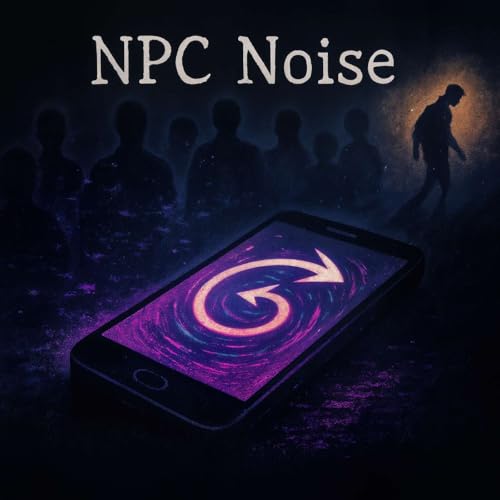The mind can turn life into a thriller you never auditioned for. When every glance feels loaded and every piece of trash reads like a message, you are not weak; you are living with an alarm system stuck on high. We dig into how hypervigilance, trauma, and loneliness can make neutral moments feel like coordinated attacks, and why the brain stitches scattered discomforts into a single persecutory plot that feels unshakably true.
I walk through a simple lighthouse frame (Signal, Mirror, Sovereignty, and a Gritty Invitation) to map what it feels like from the inside, what your nervous system might be doing, and where your control actually lives. We talk neuroscience in plain English: a salience network that flags noise as danger, the role of chronic stress and sleep debt, and the sneaky ways diet, alcohol, and doomscrolling crank paranoia higher. Then we get practical. Instead of stockpiling “proof,” build one grounded relationship where you can test beliefs without shame. Tools like CBT for psychosis and worry-focused strategies help turn the volume down, not by forcing positivity, but by loosening the grip of constant threat scanning.
Let’s also name the identity twist: believing you’re the hunted can feel like power. Letting go can feel like loss. You can honor real pain and still question the story about why it hurts. Good therapists won’t tell you you’re wrong; they’ll help you gather evidence and cope either way. If there’s a plot, steadier skills help you face it. If there isn’t, you get your life back. Ready to trade late-night red string for one solid alliance offline? Hit play, subscribe, and share this with someone who might be quietly carrying the “everyone is against me” story; then leave a review with one question you’d bring to a first session.
“Loneliness Trajectories over Three Decades Are Associated with Conspiracist Worldviews in Midlife.” Nature Communications 15, no. 1 (2024): 3629. https://doi.org/10.1038/s41467-024-47113-x.
“Posttraumatic Stress Disorder with Secondary Psychotic Features (PTSD-SP): Diagnostic and Treatment Challenges.” Progress in Neuro-Psychopharmacology and Biological Psychiatry 88 (2019): 265–75. https://doi.org/10.1016/j.pnpbp.2018.08.001.
“Effects of Cognitive Behaviour Therapy for Worry on Persecutory Delusions in Patients with Psychosis (WIT): A Parallel, Single-Blind, Randomised Controlled Trial with a Mediation Analysis.” The Lancet Psychiatry 2, no. 4 (2015): 305–13. https://doi.org/10.1016/S2215-0366(15)00039-5.
“Pathways from Trauma to Psychotic Experiences: A Theoretically Informed Model of Posttraumatic Stress in Psychosis.” Frontiers in Psychology 8 (2017): 697. https://doi.org/10.3389/fpsyg.2017.00697.
“Paranoid Beliefs and Conspiracy Mentality Are Associated with Different Forms of Mistrust: A Three-Nation Study.” Frontiers in Psychology 13 (2022): 1023366. https://doi.org/10.3389/fpsyg.2022.1023366.
“Cognitive Behavioural Therapy for Psychosis: The End of the Line or Time for a New Approach?” Psychology and Psychotherapy: Theory, Research and Practice 97, no. 1 (2024): 4–18. https://doi.org/10.1111/papt.12498.
“Psychotic-like Experiences in the Lonely Predict Conspiratorial Beliefs and Are Associated with the Diet during COVID-19.” Frontiers in Nutrition 9 (2022): 1006043. https://doi.org/10.3389/fnut.2022.1006043.
Tap HERE for all Social Media, email, and Podcast platforms
 24 m
24 m 20 m
20 m Nov 4 20252 h y 43 m
Nov 4 20252 h y 43 m 22 m
22 m 14 m
14 m 19 m
19 m 11 m
11 m 14 m
14 m
